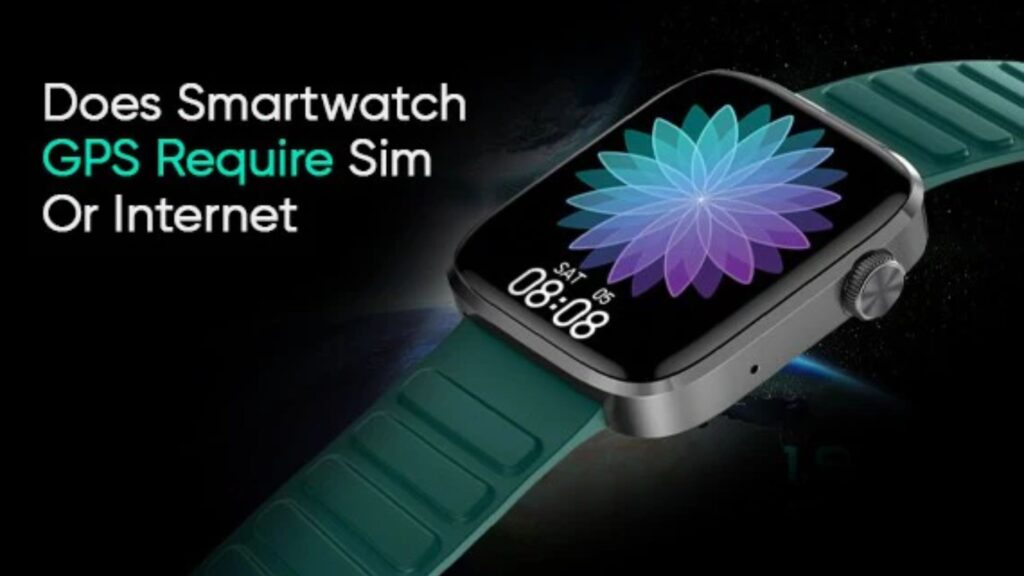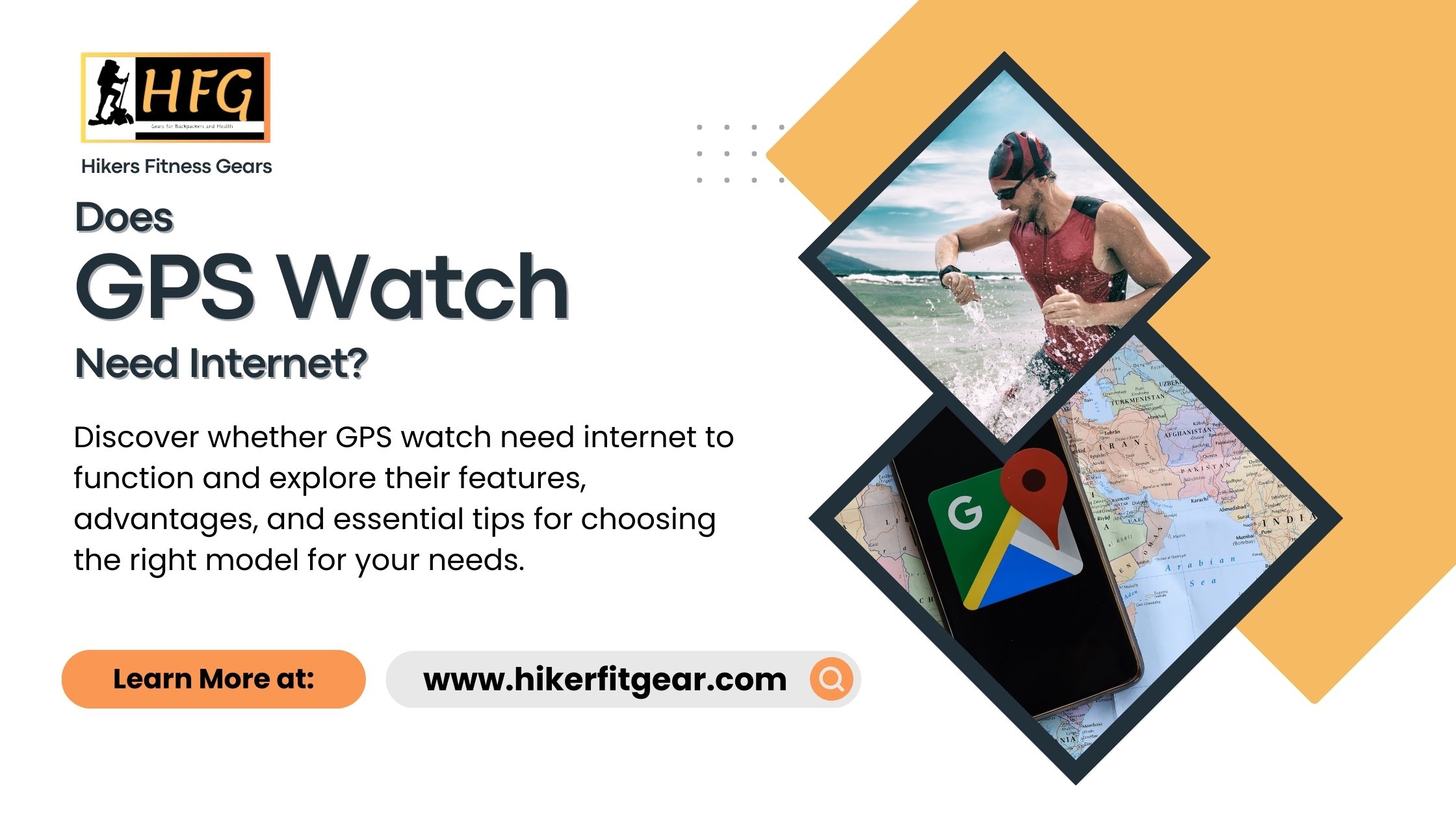Does GPS Watch Need Internet?
Introduction
In the rapidly evolving world of wearable technology, GPS watches have carved out a significant niche for themselves. These devices are highly valued for their ability to track fitness activities, provide navigation, and offer a plethora of other features designed to enhance both daily life and athletic performance. One of the most frequently asked questions by potential users is: “Does GPS watch need internet?” This question is crucial for anyone considering the purchase of a GPS watch, as it directly impacts the functionality and utility of the device in various environments. This post aims to provide a detailed answer to this question and explore the many facets of GPS watches.
Table of Contents
What This Post Covers
In this comprehensive blog post, readers will gain insights into:
- The fundamental technology behind GPS watches and how they operate.
- The specific functions and features of GPS watches that require or do not require internet connectivity.
- The importance of understanding the operational dynamics of GPS watches.
- A comparison between GPS watches and other similar devices.
- Practical tips and considerations for using GPS watches effectively.

What is a GPS Watch?
A GPS watch is a sophisticated wearable device that includes a Global Positioning System (GPS) receiver. These watches are designed to track your location, measure distances, monitor speed, and record various fitness metrics such as heart rate and calories burned. They are extensively used by runners, cyclists, hikers, and outdoor enthusiasts who need accurate and reliable tracking data. The question “Does GPS watch need internet?” often arises from a desire to understand the extent of the watch’s capabilities in areas with limited or no internet connectivity.
What Does a GPS Watch Involve?
Core Features
A typical GPS watch encompasses several core features, including:
- GPS Tracking: This is the primary function that pinpoints your location using satellite signals.
- Fitness Tracking: Monitors activities like running, cycling, swimming, and more, providing detailed metrics.
- Heart Rate Monitoring: Measures your heart rate in real-time, helping you to manage your exertion levels.
- Navigation: Offers route directions and maps to guide you during your activities.
- Connectivity: Allows data syncing with smartphones or computers to review and analyze your activity data.
Satellite Connectivity
GPS watches receive signals from a network of satellites orbiting the Earth. These satellites send signals that the watch receives and uses to calculate its position through a process known as triangulation. Importantly, the answer to “Does GPS watch need internet?” is typically no for basic GPS functions. The satellite signals are sufficient to provide location data, making the watch functional in areas without internet access.
Why Are GPS Watches Important?
Accurate Tracking
One of the primary reasons GPS watches are indispensable is their ability to offer precise tracking of outdoor activities. For athletes and fitness enthusiasts, having accurate data on distance, pace, and location is crucial for performance improvement.
Independence from Internet
A significant advantage of GPS watches is their ability to function without an internet connection. This makes them highly reliable in remote or rural areas where internet access might be unavailable. Understanding the answer to “Does GPS watch need internet?” highlights the autonomy of these devices in tracking and navigation.
Enhanced Navigation
For hikers, adventurers, and travelers, GPS watches provide essential navigation features that can be lifesaving in unfamiliar terrains. These watches can guide users through trails, helping them to avoid getting lost.

Does GPS Watch Need Internet?
it’s important to understand the mechanics of how GPS watches function. GPS watches rely on satellite signals rather than cellular or Wi-Fi networks. When you initiate an activity, the watch connects to several satellites to determine your exact location. This process, known as satellite triangulation, does not require an internet connection. The data recorded during your activity is stored on the watch and can later be synced with an app or software via Bluetooth or USB.
Use Cases of GPS Watches
- Running: Track distance, pace, routes, and other performance metrics to help improve running efficiency and endurance.
- Cycling: Monitor speed, elevation, routes, and cadence, providing valuable data for training and competitive performance.
- Hiking: Navigate trails, record progress, and ensure safety in remote areas without the need for an internet connection.
- Swimming: For waterproof models, GPS watches can record lap counts, strokes, and distance, offering swimmers detailed performance insights.
Connectivity and Data Syncing
While the answer to “Does GPS watch need internet?” is no for basic GPS functions, syncing data typically requires internet access. After your activities, you can connect the watch to your smartphone or computer via Bluetooth or USB. This connection allows the transfer of recorded data to apps or software where you can analyze your performance in detail. This process, however, only requires internet during the data syncing stage, not during the actual activity tracking.
Why is GPS Watch Different from Other Similar Devices?
No Dependence on Internet
Does GPS Watch Need Internet? A distinguishing feature of GPS watches is their independence from the internet for their core GPS functions. Unlike smartphones or tablets that require an internet connection for most GPS functionalities, GPS watches operate solely on satellite signals. This autonomy is crucial for users who engage in activities in remote locations where internet access is not guaranteed. Thus, addressing the question “Does GPS watch need internet?” often emphasizes this key difference.
Specialized Fitness Features
GPS watches are specifically designed for fitness and outdoor activities, offering features tailored to these uses. This specialization includes advanced metrics for running, cycling, swimming, and more, which are not typically found in general-purpose smart devices. For serious athletes and outdoor enthusiasts, this focus makes GPS watches a more suitable choice.
Things to Look for When Dealing with GPS Watches
Battery Life
One of the most critical aspects to consider when choosing a GPS watch is battery life. Since GPS tracking can be power-intensive, ensuring the watch has a long battery life is essential, especially if you plan on using it for extended periods without access to charging facilities.
Durability
Durability is another important factor. Look for GPS watches that are water-resistant, shock-proof, and built to withstand harsh environments. This is particularly important for outdoor enthusiasts who may encounter adverse weather conditions or rough terrain.
Compatibility
Compatibility with your smartphone and preferred fitness apps is crucial for seamless data syncing and analysis. Ensure the GPS watch you choose can easily connect and transfer data to your existing devices and platforms.
Features and Customization
Consider the specific features you need based on your activities. Some GPS watches offer advanced customization options, allowing you to tailor the watch’s functionality to suit your particular needs. Whether it’s customizable display screens, specialized training programs, or integration with other fitness equipment, these features can significantly enhance your user experience.

Conclusion
The question “Does GPS watch need internet?” can be conclusively answered: No, a GPS watch does not need an internet connection to perform its core functions of tracking and navigation. GPS watches rely on satellite signals, which makes them highly reliable and functional even in areas without internet access. Understanding how these devices operate and their key features can help you choose the right model for your needs and make the most out of your outdoor and fitness activities.
GPS watches are powerful tools for fitness tracking and navigation, offering precise data without the need for an internet connection. Whether you are a runner, cyclist, hiker, or swimmer, these watches provide valuable insights and navigation capabilities that enhance your performance and safety. By considering factors such as battery life, durability, and compatibility, you can select a GPS watch that meets your specific requirements and enjoy the benefits of advanced tracking technology.
Frequently Asked Questions
Q1: Do GPS Watches Need an Internet Connection to Track Activities?
Does GPS Watch Need Internet? No, GPS watches do not need an internet connection to track activities. They rely on satellite signals for location data, making them highly functional in areas without internet access.
Q2: Are All GPS Watches Waterproof?
Not all GPS watches are waterproof. It is essential to check the specifications of the model you are interested in to ensure it meets your water resistance requirements, especially if you plan to use it for swimming or other water-based activities.
Q3: Can I Sync My GPS Watch Data Without Internet?
Yes, you can sync your data using Bluetooth or USB connections to your smartphone or computer. However, an internet connection is needed for syncing data to online platforms or apps.
Q4: Can GPS Watches Be Used Indoors?
While GPS watches are designed for outdoor use and rely on satellite signals, some models can use alternative methods, such as accelerometers and gyroscopes, to estimate distance and pace indoors. However, their accuracy indoors may not match that of outdoor use due to the lack of direct satellite signal access.
Q5: How Accurate Are GPS Watches?
GPS watches are generally very accurate, with most models offering precision within a few meters. However, accuracy can be affected by factors such as signal obstructions, atmospheric conditions, and the quality of the GPS receiver in the watch.

My name is Oje and I’m obsessed with finding the latest tech gear to help people track progress and solve problems more efficiently. I spend countless hours researching and testing innovative apps, wearables, and devices for fitness, health, productivity, and more.
